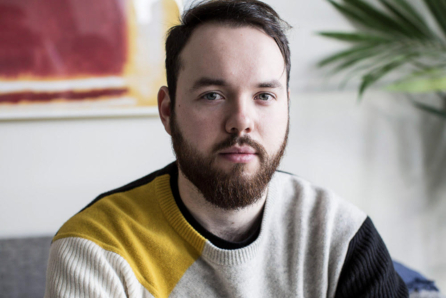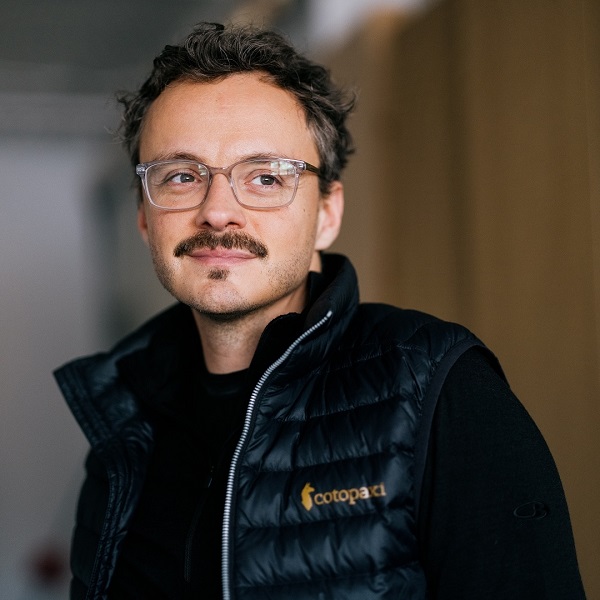There have been a few pivotal Eureka moments for Sonder CEO Francis Davidson as he built a company that has become both a Silicon Valley darling and a hospitality industry disrupter extraordinaire.
The first was in 2012, when he was still a McGill student and had decided to sublet his apartment in the McGill Ghetto for the summer. That initial goal soon morphed into something far more ambitious.
Much has been made of the fact that Davidson and his Sonder co-founder Lucas Pellan were mere undergraduates when they launched their idea for travellers’ accommodation, but they approached the new business with a seriousness of purpose right from the start. As they mulled over the possibility of turning their student digs into short-term vacation rentals for tourists, Davidson says even then the venture was data driven.
“I just pulled together all the math and data analysis I was capable of at that point and built a pretty sophisticated model.”
That early exercise in number-crunching convinced Davidson that they could create a viable business. Some of the nascent company’s first offerings were apartments that McGill classmates wanted to sublet. By 2014, Davidson says they were racking up hundreds of thousands of dollars in rentals.
When hotel meets home

That same year, Davidson (left) and Pellan had another epiphany when they travelled to San Francisco. They wrote about it on the Sonder site.
“We’d booked an apartment and we were having a hard time getting in touch with our host. When we arrived at the apartment with all of our luggage, no one was there. After many unreturned messages, we finally connected, and learned there was a key under the mat. The apartment didn’t look like it was ready for visitors. There was half-eaten food in the fridge and dog hair blanketing the furniture.”
Pellan’s allergies soon kicked in and they had to switch to a hotel. “Nothing exciting, but no dog hair at least.” If subletting an apartment had given them the idea for the kind of business they would launch, this experience determined the way they would run that business.
“What if there was a place as reliable as a hotel, but with all the warmth and character of a home?” That vision has propelled the Sonder co-founders ever since.
As things continued to progress in 2014, Davidson says there was one particular moment when the impact of their success sunk in. “All right, I said to myself, this is working but I haven’t been to class in two months!” He says he tried to show up for his exams, but he never checked back to see how he did. He is pretty sure he failed.
It was that moment, he says, that he realized he was just too busy for school; so a few credits short of graduation, he quit. On his LinkedIn page, he jokes that he hasn’t completely given up on the idea of completing his McGill degree. “6 credits left … Maybe in 2025?”
Seven years later, with no regrets, the McGill almost-grad has transformed his tiny sublet venture into a thriving network of 10,000 short-term apartment rentals with outposts in 27 countries.
Sonder officially achieved unicorn status last summer, earning a valuation of more than a billion dollars. It reached that momentous threshold after securing $210 million in its most recent funding round from such investors as billionaire venture entrepreneur Nicholas Pritzker and A-Rod, the investment firm launched by former baseball superstar Alex Rodriguez.
The company is now a player in the highly competitive alternative hospitality accommodation industry. It is a hybrid of uniquely stylish serviced apartments with many of the perks and conveniences of upscale boutique hotels – from 24-hour concierge service via text to fluffy towels and high-end toiletries
An emphasis on aesthetics
Though Davidson eschews categorization, he describes the project as a tech-driven deconstructed hotel.
Imagine a multi-suite luxury hotel, but one in which travellers have a choice of stay in apartments in dozens of countries, cities, and neighbourhoods.
For example, a Sonder booking might be a suite in San Antonio’s microbrewery rich Pearl District with a décor that subtly references southwest art. On another continent a Sonder traveller can settle into a balconied apartment in Rome’s Campo Marzio neighbourhood (an antique shop district), that boasts wooden beamed ceilings that riff on the surrounding 15th and 16th century architecture.
Davidson is fascinated with design and design begins, he says, with choosing interesting buildings in neighbourhoods where larger brand hotels would not consider locating. In Boston, for example, Sonder chose The Fenway, an area famous for baseball, beer and students, but not known as an upscale overnight destination for travellers. In Miami, one Sonder location is in Little Havana, which, while an outpost for tourists’ daytime excursions, was not a place for luxe overnight stays until recently.
Unlike the traditional hotel model that sometimes incorporates “theme” rooms such as Boston’s Hotel Commonwealth’s baseball-themed suites or the country music theme rooms at Nashville’s Renaissance, Davidson stresses that Sonder’s “design cues are more subtle.”
Suites are intended to make guests feel as if they actually live in an apartment in that neighbourhood and city, so when cow hides were pitched for some Texas properties, the Sonder team on the ground nixed the idea, Davidson says. “Listen, we know that’s what you think about Texas,” the local team pointed out, “but that’s not what we are about here.”
The company fills its apartment style hotel rooms with carefully curated design references that reflect each neighbourhood and each building whether it is an historic property or a space in a new multi-hundred unit construction. At first, Davidson says, every Sonder unit was unique in its design, but with the acquisition of larger buildings that became unrealistic. “We might have up to 20 different kinds of designs in a 200-unit building now. Two hundred different designs would just be impossible.”
Companies that specialize in short-term rental accommodations have come under fire for the impact they have on the availability of long-term rental properties in major cities. David Wachsmuth, BA’04, a Canada Research Chair in Urban Governance at McGill, has raised concerns about Airbnb in particular. One of his studies indicated that Airbnb was likely responsible for the loss of 31,100 units from the long-term rental market in Canada.
Sonder’s approach when it enters a new market is cautious and collaborative. The company works with local experts and focuses on commercial and mixed-use zones.
In a piece he published in Medium in 2018, Davidson wrote, “We forge relationships with cities, ensure local rules are always respected – decrepit office buildings, blighted property, underutilized industrial buildings and brand new constructions are currently being developed into fully licensed Sonders across the world.”
An app, not a front desk
Now based in tech-heavy San Francisco, Sonder’s edge is its use of technology, says Davidson. He and Pellan were named to the Forbes 30 Under 30 list of rising young entrepreneurs in 2018 in the consumer technology category. Sonder’s technology team has built tools to bypass what are for Davidson the now antiquated concepts of lobby, check-in and service calls to a front desk. The whole process, he says, is now effortless via an app used by both guests and the Sonder crew.
Davidson’s conversance with technology, econometrics, statistics, competitive dynamics, and game theory seems effortless too. He says that he applies all that to his business. “Frankly,” he says, “if I didn’t start this business I would be wrapped up in a PhD by now. I just love the idea of learning.”
A philosophy and economics major during his McGill studies, he says when making business decisions he still uses concepts such as three-dimensional probability distributions that he learned from professors such as John Galbraith. “My overall appreciation for probability, uncertainty and estimation are things I use day-to-day.” He might not have completed his degree, but he was paying attention in class.
Davidson admits the speed of the company’s success and navigating Sonder’s growth can sometimes leave him a bit breathless.
“It’s been an intense process of learning.” he says. Davidson says he deliberately seeks out those with experiences different from his own and listens intensely to feedback from his board members, advisors, investors and an executive coach. At this point, he says, the company has about 1,000 people, but he acknowledges that as it grows the only way he can be at the helm is, as he puts it, “to stay really focused on what I can do better.”
Davidson’s appreciation for McGill extends beyond the classes he did and didn’t attend. At the very beginning, when Sonder was still called Flatbook and he was still living in a crammed student apartment on Hutchison, he and his friends entered the University’s annual competition for promising start-ups, the McGill Dobson Cup.
They didn’t win, but Davidson did connect with one of the judges – Tim Tokarsky, BSc’88, a Montreal-based investor and one of the co-founders of the McGill X-1 Accelerator, an intensive summer program for McGill-related start-ups. Tokarsky would become an early champion of the young company and one of its first investors.
Tokarsky says Davidson and his team nailed it from their first presentation. “I was really impressed with honestly the sophistication of Francis’s models for someone who’d never really done this before.”
Davidson maintains his links to the McGill Dobson Centre for Entrepreneurship. Sonder recently played host in San Francisco for the second consecutive year to the young companies showcased annually during the centre’s McGill Startup Tour. “If he’s in town, he’ll send an email, saying he’d love to meet with some start-up founders from McGill,” says Renjie Butalid, the associate director of the centre.
Davidson’s trips back to Quebec are important, not only to see his family in Gatineau, but also to rekindle his connection with favourite places at McGill and in Montreal. The Islamic Studies Library, one of his campus haunts, ranks high on the list of places he suggests newcomers to McGill check out.
As for off-campus spots, he speaks nostalgically about the Byzantine-style Church of St. Michael and St. Anthony in Mile End, “a perfect place to read and think.” He remembers being “an extreme regular” at Bagel Etc on the Main.
As the buzz around Sonder continues to grow, Davidson says he isn’t distracted by the hype or by the pressures and expectations associated with Sonder’s unicorn status. He says he simply loves his work.
“We are doing our best to create a company the customers will love, employees will love working for and communities will embrace. I’ve found more meaning in building a company that is interesting and fun than just trying to maximize the share price for the business.”
Judith Ritter is a radio and print journalist who spends much of her time in the Washington D.C. area. Her work has appeared in The Globe and Mail, the National Post and The Boston Globe.


